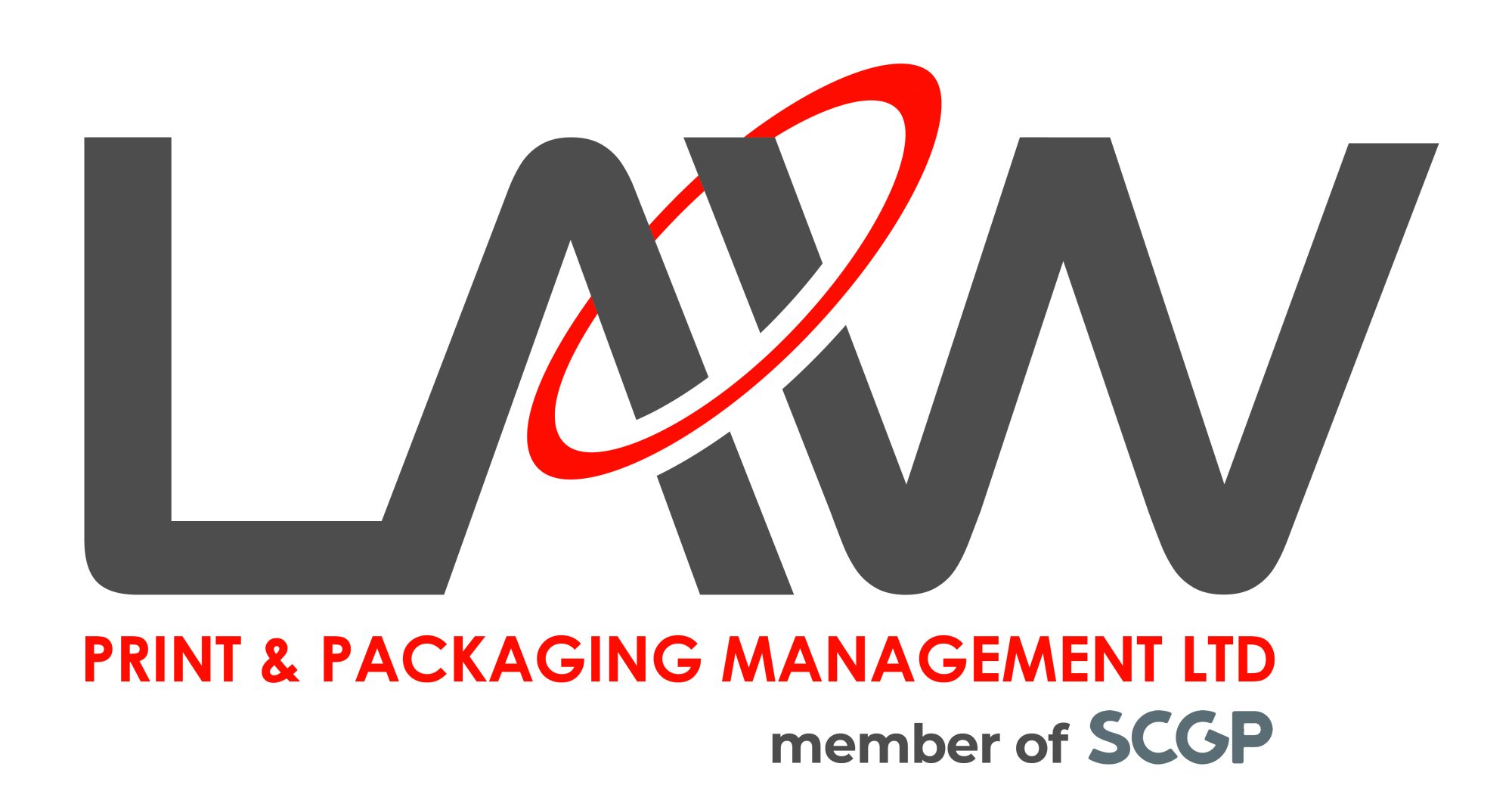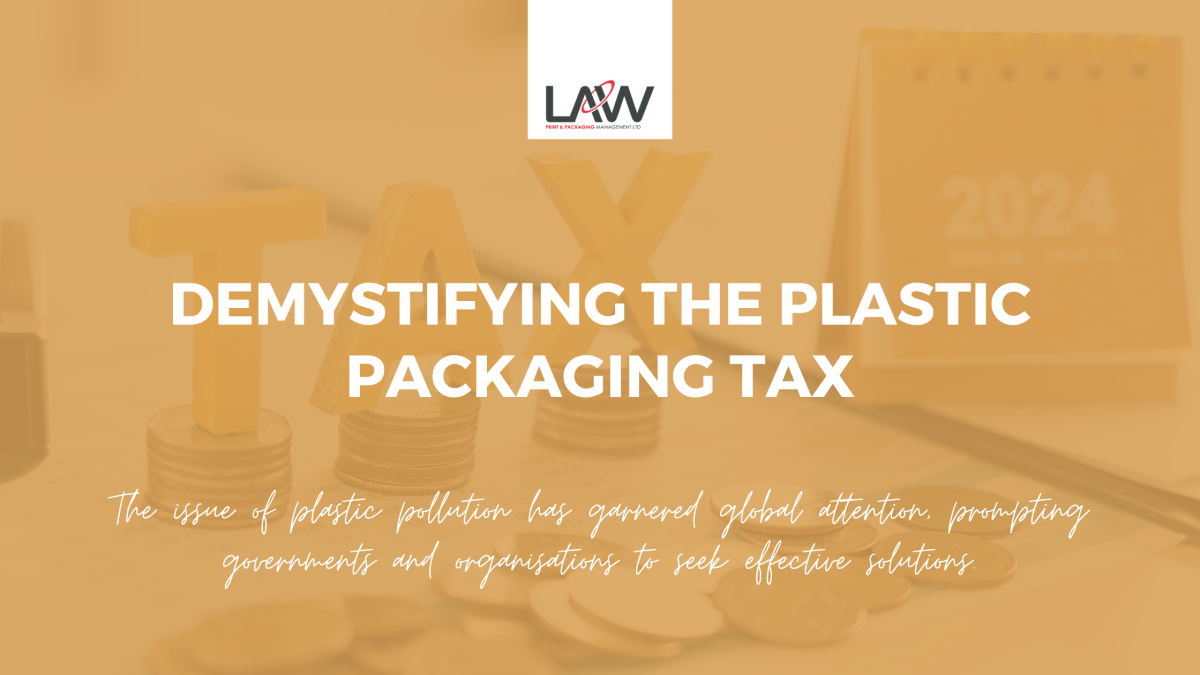The issue of plastic pollution has garnered global attention, prompting governments and organisations to seek effective solutions. One such initiative is the Plastic Packaging Tax, a measure designed to reduce plastic waste and promote sustainable packaging alternatives.
Despite its growing prominence, many people still need clarification about what the Plastic Packaging Tax entails and how it impacts businesses and consumers.
This blog aims to demystify the Plastic Packaging Tax. At Law Print we are constantly updating our knowledge so we can help and advise our customers.
Understanding the Plastic Packaging Tax
The Plastic Packaging Tax (PPT) is a levy imposed on plastic packaging that does not meet specific recycling criteria. It is designed to incentivise the use of recycled materials in packaging, thus reducing the environmental footprint of plastic products. The tax targets manufacturers, importers, and businesses producing or using plastic packaging.
The Origins of the Plastic Packaging Tax
The concept of the Plastic Packaging Tax emerged as part of broader environmental policies aimed at tackling plastic waste. The United Kingdom was among the first countries to introduce such a tax, effective April 2022. This move was part of a wider strategy to achieve a circular economy, where materials are reused, recycled, and kept in circulation for as long as possible.
How the Tax Works
The specifics of the Plastic Packaging Tax can vary by region, but the fundamental principles remain consistent. Here’s a breakdown of how it typically operates:
- Thresholds and Rates: The tax is applied to plastic packaging that contains less than a specified percentage of recycled plastic. For instance, the UK’s Plastic Packaging Tax applies to plastic packaging containing less than 30% recycled content, with a charge of £217.85 per tonne.
- Scope and Exemptions: The tax covers a wide range of plastic packaging, including single-use items, but there are exemptions. For example, packaging used for medical products or transport packaging for imported goods.
- Reporting and Compliance: Businesses are required to maintain records and report the amount of plastic packaging they produce or import. Non-compliance can result in penalties, encouraging businesses to adhere to the guidelines.
Implications for Businesses
The Plastic Packaging Tax has significant implications for businesses across various sectors. Companies need to adapt their packaging strategies to avoid the tax and remain competitive. Here are some key impacts:
- Increased Costs: Businesses that rely heavily on plastic packaging may face higher costs if they do not shift to recycled materials. This can impact profit margins and pricing strategies.
- Supply Chain Adjustments: Companies might need to modify their supply chains to source recycled materials, which could involve finding new suppliers or investing in new technologies.
- Innovation and Sustainability: The tax incentivises innovation, pushing companies to develop more sustainable packaging solutions. This can lead to long-term benefits, including enhanced brand reputation and customer loyalty.
Implications for Consumers
While the primary burden of the Plastic Packaging Tax falls on businesses, consumers may also feel its effects. These can manifest in several ways:
- Price Increases: As businesses pass on the additional costs to consumers, the prices of certain products may rise. However, this can be mitigated if companies successfully transition to more cost-effective, sustainable packaging.
- Greater Awareness: The tax highlights the environmental impact of plastic packaging, raising consumer awareness and encouraging more eco-friendly purchasing decisions.
Potential Benefits
Despite the challenges, the Plastic Packaging Tax offers several potential benefits:
- Environmental Impact: By encouraging the use of recycled materials, the tax helps reduce plastic waste and its associated environmental damage. This can contribute to cleaner oceans, reduced landfill use, and lower greenhouse gas emissions.
- Economic Opportunities: The shift towards sustainable packaging can stimulate new industries and job creation in the recycling and green technology sectors.
- Behavioural Change: The tax catalyses change, prompting both businesses and consumers to reconsider their use of plastic and adopt more sustainable practices.
Need more information about sustainability in 2024? If your brand wants to invest in quality packaging, we will guide you through the entire print process. In addition, we are providing recommendations along the way to improve efficiency, reduce costs and add untold value to the end product.
Contact us on +44 (0) 161 440 7302 or follow this link to complete our contact form.


